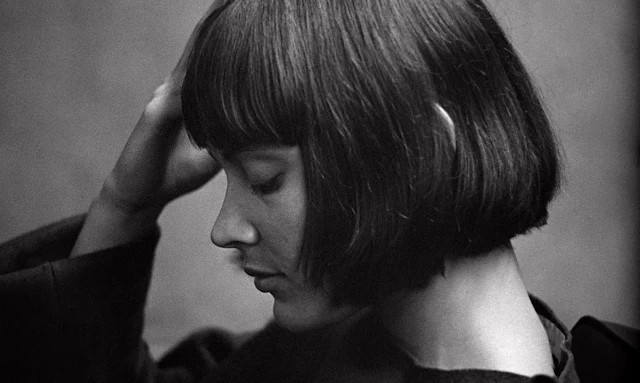 |
| Clara Mayer in Stereo |
Cast: Ronald Mlodzik, Jack Messinger, Paul Mulholland, Iain Ewing, Arlene Mlodzik, Clara Mayer, Glenn McCauley. Screenplay: David Cronenberg, Cinematography: David Cronenberg. Film editing: David Cronenberg.
 |
| Ronald Mlodzik in Crimes of the Future |
I can't imagine there's much of an audience for David Cronenberg's Stereo and Crimes of the Future (a title he reused in the 2022 feature, which borrows an element of the 1970 film but otherwise has no resemblance to the first one) except among film scholars and passionate devotees of his work. They look like the work of a film school student, although Cronenberg was teaching himself how to make movies at the time. Both are silent except for voiceovers that do what they can to give the images a narrative shape. In the case of Stereo, there's very little of that: The voiceovers sound like excerpts of lectures given by social science professors about a research project concentrated on telepathy and sexuality. Crimes of the Future has a more complex narrative line, as Adrian Tripod (Ronald Mlodzik), a dermatologist who heads a clinic called the House of Skin, tells about the attempts to halt a plague caused by cosmetics. It's a creepier film than Stereo, more in the line with Cronenberg's later work, with a nice performance by Mlodzik, who appeared in several of his films before entering the clergy.
